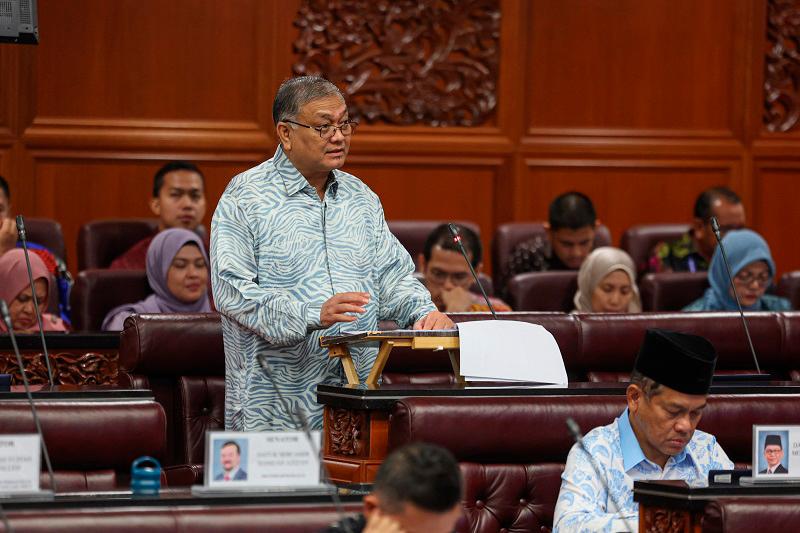KUALA LUMPUR: Certification from government medical officers or registered medical practitioners remains necessary for obtaining treatment and rehabilitation orders for drug addicts under the amended Drug Dependants (Treatment and Rehabilitation) Act 1983.
Deputy Home Minister Datuk Seri Shamsul Anuar Nasarah said under the amendments to Sections 6 (1) and 6 (a)(1) of the Act, certification by medical officers, along with recommendations from National Anti-Drug Agency officers, must be submitted to the Magistrate to obtain the relevant orders.
“Therefore, I would like to emphasise that the issue of rehabilitation officers (AADK) being given extensive or absolute powers does not arise, as certification from government medical officers or registered medical practitioners is still required under Sections 6 (1) and 6 (a)(1) of this Bill,” he said.
He said this when winding up the debate on the Drug Dependants (Treatment and Rehabilitation) (Amendment) Bill 2024 in the Dewan Negara today.
The Bill, which among other things aims to distinguish between drug dependants and substance abusers, as well as to broaden the scope of treatment and rehabilitation for addicts, was passed with a majority vote after being debated by 31 senators.
Shamsul Anuar said the amendments would also improve provisions for regulating private rehabilitation centres (PDP) to ensure their operations meet established quality standards and qualifications.
“The existing Act does not have provisions for offences related to unregistered centres or violations of conditions, so we believe there is a need to regulate PDPs through this Bill.
“These amendments will ensure the safety and welfare of residents or clients while empowering the community to work with the government in providing drug and substance treatment and rehabilitation services,” he said.
In addition, he emphasised that the rehabilitation and treatment recommendations made by AADK officers for drug addicts under the amended Bill are based on their academic qualifications, expertise and training.
“In addition to academic qualifications, AADK rehabilitation officers possess competencies of at least 1,000 to 5,000 credit hours and have three to five years of field experience in treating and rehabilitating clients,” he said.
Also passed today was the Malaysian Border Control and Protection Agency Bill 2024, which allows for the establishment of the Malaysia Checkpoints and Border Agency (MCBA) to take over the functions of related agencies at entry points, such as the Immigration Department of Malaysia and the Customs Department.
However, this takeover does not include the functions of interpretation and collection of duties or taxes at permanent entry points, as under the Customs, the Department of Quarantine and Inspection Services Malaysia, the Road Transport Department, the Department of Wildlife and National Parks, and the Ministry of Health.









